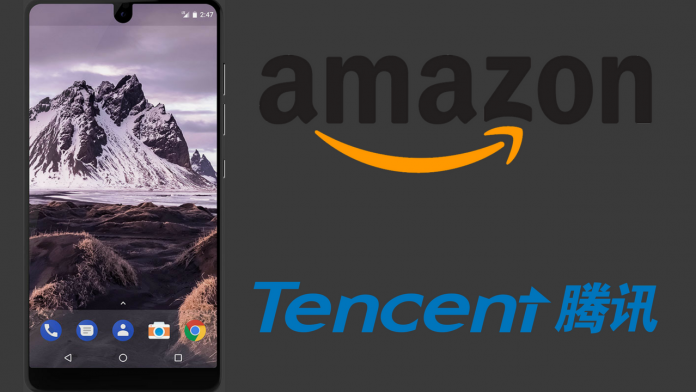
On Wednesday, Essential secured an additional $300 million in funding from Amazon’s Alexa Fund and the Chinese internet giant Tencent. Its main product, the Essential Phone, will finally get a release date in Amazon and Best Buy next week according to President Niccolo De Masi.
Analysts from Equidate valued the startup founded by Andy Rubin between $900 million and $1 billion during the aftermath of the deal. Aside from the Essential Phone, developers and engineers are working on an Essential Home hub and there are plans for a vehicle-oriented device.
In spite of the media’s persistence to push the narrative of Essential looking for a fight against Apple and Samsung, the reality is far from that scenario. Rubin and co. are focused on doing their own thing: creating technology that truly makes a difference.
https://twitter.com/Arubin/status/895357116277342208
U.S. and Canada will be the firsts to get the Essential Phone
Rubin and De Masi’s interviews with The Wall Street Journal were preceded by announcements regarding carrier partnerships for the Essential Phone. Sprint will carry the device in the United States and Telus will do the same in Canada.
The creator of Android reneged to confirm whether the Phone will come to Europe anytime soon, but he did say that release dates and availability in the old continent should be expected toward the end of the year.
Experts have suggested that the limited support from telecom leaders will cost Essential the potential head start it could get if it gained full support from giants like Verizon, AT&T, and T-Mobile. They believe that these carriers, like many other companies, are watching from afar waiting to see how it does.
Essential’s business is off to a promising start
Nevertheless, the Android handset is coming unlocked in all its titanium and ceramic glory courtesy of Best Buy and Amazon itself. This last deal is particularly striking, given the catastrophic history of the e-commerce giant with mobile phones.
Their support could prove essential to the company in their path forward, especially when it has plans as ambitious as bridging all and every smart home device and platform and, perhaps, providing simple solutions for drivers in cars.
The Essential Home is already under development and, as Andy Rubin puts it, the challenge resides in building bridges to connect the islands that, once again, every company is trying to create with their connected devices for the household. This is, in simple terms, the same strategy that gave us Android.
In the future, the Essential Car could be in the cards but not as a vehicle itself. The startup is considering the idea of upgrading every car to be just as smart as their modern counterparts with a dashcam. Although the specifics of that project are not quite out yet, speculation suggests it could give cars the ability to self-drive.
Source: The Wall Street Journal










